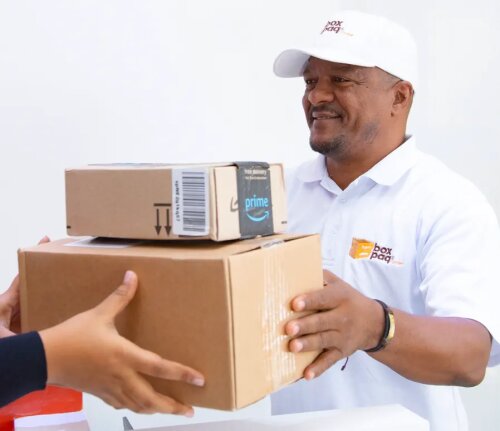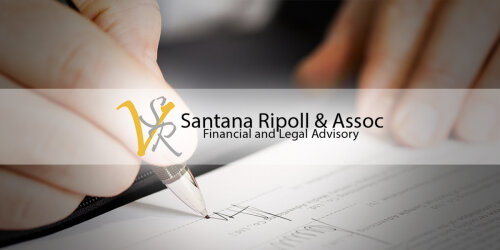Best Water Law Lawyers in Puerto Plata
Share your needs with us, get contacted by law firms.
Free. Takes 2 min.
List of the best lawyers in Puerto Plata, Dominican Republic
About Water Law in Puerto Plata, Dominican Republic
Water Law in Puerto Plata, Dominican Republic governs the use, management, conservation, and distribution of water resources in the region. Water is considered a public good in the country, and its management falls under the legal framework established by national laws, government agencies, and local regulations. In Puerto Plata, an important coastal province, issues such as water access, environmental protection, and water rights are vital for residents, business owners, and agricultural operators. Water Law regulates everything from private water extraction permits, river and aquifer protection, to the resolution of disputes regarding water usage.
Why You May Need a Lawyer
Obtaining legal advice or representation in Water Law matters can be important for several reasons. Common situations where people seek legal help include:
- Disputes over water rights between neighbors or businesses
- Obtaining permits for water extraction or usage
- Environmental concerns related to water contamination or pollution
- Compliance with local and national water regulations
- Resolving fines or sanctions from authorities for alleged violations
- Legal issues arising from shared wells or irrigation systems
- Construction or real estate developments affecting water sources
- Community initiatives to improve access to safe water
A lawyer with experience in Water Law can help interpret complex regulations, negotiate with authorities, and defend your rights if conflicts arise.
Local Laws Overview
Puerto Plata, like the rest of the Dominican Republic, follows the national water code established under Law 5852, which is supported by various decrees, resolutions, and environmental protection laws. Some key aspects include:
- All water resources are considered a public good and are managed by the government
- Permits are required for extracting water from rivers, wells, or other natural sources for commercial or industrial use
- Regulations control the disposal of waste into water sources to prevent pollution
- The National Institute of Water Resources (INDRHI) oversees water management and distribution
- Communities may have local bylaws on shared water resources, particularly in rural or agricultural sectors
- Environmental laws impose responsibilities for protecting aquatic ecosystems
- Conflict resolution mechanisms exist for water rights disputes
Understanding these legal aspects is crucial for anyone seeking to use, manage, or protect water resources in Puerto Plata.
Frequently Asked Questions
What is Water Law and why does it matter in Puerto Plata?
Water Law refers to the set of rules and regulations that govern the use, distribution, and management of water resources. It matters in Puerto Plata due to increasing demand, environmental concerns, and community needs for reliable water access.
Who owns water resources in Puerto Plata?
All water resources in the Dominican Republic, including Puerto Plata, are public property and managed by the government. Individuals and entities must obtain permits for extraction or use beyond basic domestic needs.
How can I legally extract water from a river or well?
You need to apply for a permit through INDRHI or the appropriate local authority. Unauthorized extraction, especially for commercial purposes, can result in penalties.
What are common legal conflicts related to water in Puerto Plata?
Disputes often arise over access or rights to use water from shared sources, contamination concerns, or overuse by one party to the detriment of others.
What should I do if I suspect water pollution near my property?
Report the issue to local environmental authorities or INDRHI. Consulting a lawyer can help you understand your options and potentially launch a legal claim or complaint.
Can I build near a water source in Puerto Plata?
There are strict regulations governing construction near rivers, lakes, and wells to protect public resources and prevent pollution. Obtaining the correct permits and environmental assessments is essential.
Are there specific rules for agricultural water use?
Yes, large-scale or commercial agricultural users typically need permits. There are also rules on irrigation canal maintenance and water sharing among communities.
What are the penalties for violating Water Law regulations?
Penalties may include fines, suspension of extraction permits, and in severe cases, criminal charges for deliberate pollution or environmental harm.
How do communities manage shared water resources?
Many rural or agricultural communities form committees or water user associations, often recognized by law, to manage distribution and resolve disputes internally before involving authorities.
How can a lawyer help with Water Law issues?
A lawyer navigates the regulatory landscape, helps with permits and compliance, mediates disputes, represents you before authorities, and protects your legal interests.
Additional Resources
If you need more information or support regarding Water Law in Puerto Plata, consider reaching out to the following resources:
- The National Institute of Water Resources (Instituto Nacional de Recursos Hidráulicos - INDRHI)
- Ministry of Environment and Natural Resources (Ministerio de Medio Ambiente y Recursos Naturales)
- Local municipal governments in Puerto Plata
- Community water boards (Juntas de Agua or Asociaciones de Usuarios de Agua)
- Environmental protection groups and legal aid organizations working in the region
Next Steps
If you are facing a water-related legal issue in Puerto Plata or want to ensure compliance with Water Law regulations, consider the following actions:
- Gather all relevant documents and evidence regarding your situation
- Reach out to the appropriate government office for guidance or permit applications
- If disputes arise, seek advice from a lawyer with experience in Water Law
- Stay informed about local regulations and community requirements
- Participate in local meetings or associations managing water resources
Early legal advice can help prevent problems, ensure proper compliance, and resolve disputes efficiently. Consult a qualified Water Law attorney to discuss your specific circumstances and protect your rights.
Lawzana helps you find the best lawyers and law firms in Puerto Plata through a curated and pre-screened list of qualified legal professionals. Our platform offers rankings and detailed profiles of attorneys and law firms, allowing you to compare based on practice areas, including Water Law, experience, and client feedback.
Each profile includes a description of the firm's areas of practice, client reviews, team members and partners, year of establishment, spoken languages, office locations, contact information, social media presence, and any published articles or resources. Most firms on our platform speak English and are experienced in both local and international legal matters.
Get a quote from top-rated law firms in Puerto Plata, Dominican Republic — quickly, securely, and without unnecessary hassle.
Disclaimer:
The information provided on this page is for general informational purposes only and does not constitute legal advice. While we strive to ensure the accuracy and relevance of the content, legal information may change over time, and interpretations of the law can vary. You should always consult with a qualified legal professional for advice specific to your situation.
We disclaim all liability for actions taken or not taken based on the content of this page. If you believe any information is incorrect or outdated, please contact us, and we will review and update it where appropriate.











